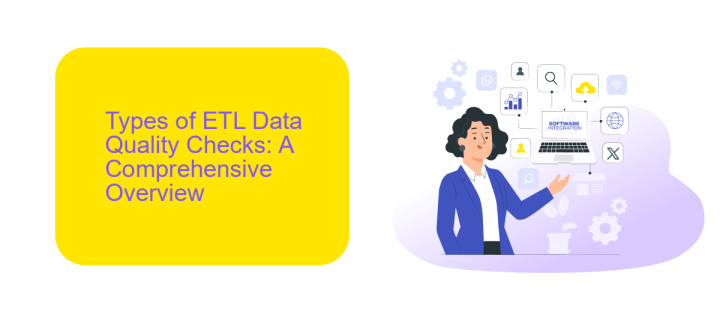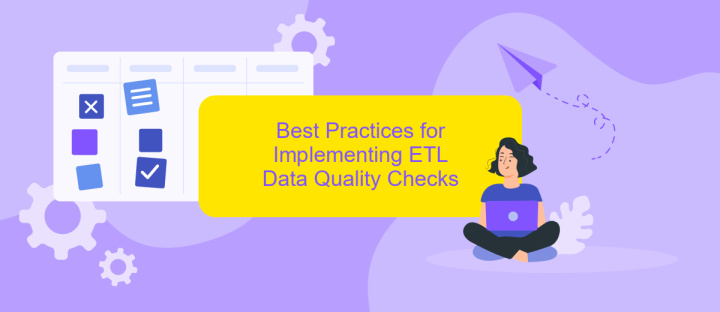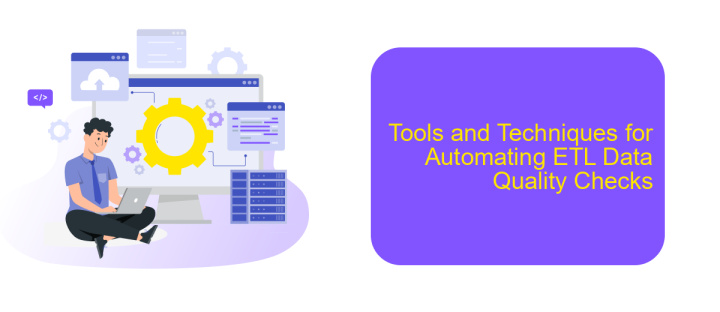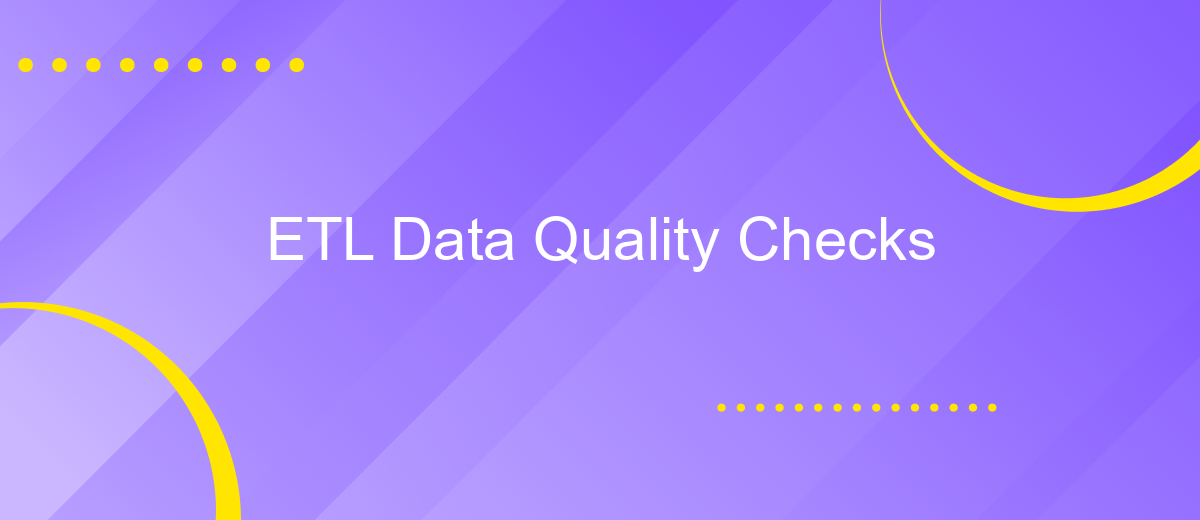ETL Data Quality Checks
Ensuring data quality is a crucial aspect of any ETL (Extract, Transform, Load) process. ETL data quality checks help identify and rectify errors, inconsistencies, and inaccuracies before data is loaded into the target system. This article delves into the importance of these checks, common techniques used, and best practices to ensure your data remains reliable and trustworthy throughout the ETL process.
Introduction: Understanding the Importance of ETL Data Quality Checks
In the realm of data management, ETL (Extract, Transform, Load) processes are pivotal for integrating and preparing data for analysis. Ensuring the quality of data during these processes is crucial, as poor data quality can lead to inaccurate insights and flawed decision-making. ETL data quality checks are essential to maintain the integrity and reliability of the data pipeline.
- Accuracy: Ensures that the data is correct and free from errors.
- Completeness: Verifies that no critical data is missing.
- Consistency: Confirms that the data is uniform across different sources.
- Timeliness: Guarantees that the data is up-to-date and available when needed.
- Validity: Checks that the data conforms to the required formats and standards.
By implementing robust ETL data quality checks, organizations can trust their data and make informed decisions. Tools like ApiX-Drive simplify the integration and automation of data quality checks, ensuring seamless data flow and enhancing overall data governance. Investing in data quality is not just a technical necessity but a strategic advantage.
Types of ETL Data Quality Checks: A Comprehensive Overview

ETL data quality checks are crucial for ensuring that the information transferred between systems is accurate, consistent, and reliable. These checks can be categorized into various types, each addressing specific aspects of data integrity. Common types include completeness checks, which ensure that all required data is present; accuracy checks, which validate that the data values are correct; and consistency checks, which confirm that data is uniform across different datasets. Additionally, uniqueness checks help to identify and eliminate duplicate records, while timeliness checks ensure that the data is up-to-date and available when needed.
Another important category is referential integrity checks, which verify that relationships between datasets are maintained correctly. For organizations looking to streamline their ETL processes, services like ApiX-Drive can be invaluable. ApiX-Drive offers automated workflows that can integrate various data sources and perform real-time quality checks, ensuring that data is transferred accurately and efficiently. By leveraging such tools, businesses can significantly reduce the risk of data quality issues, thereby enhancing the reliability of their analytics and decision-making processes.
Best Practices for Implementing ETL Data Quality Checks

Implementing ETL data quality checks is essential to ensure the reliability and accuracy of your data pipelines. By following best practices, you can minimize errors and enhance data integrity. Here are some key steps to consider:
- Define clear data quality metrics and thresholds to measure data accuracy, completeness, and consistency.
- Automate data validation processes using tools and services like ApiX-Drive, which can streamline integration and monitoring.
- Implement data profiling to understand the structure, content, and quality of your data sources before loading them into the ETL pipeline.
- Regularly audit and update data quality rules to adapt to changing data sources and business requirements.
- Ensure robust error handling and logging mechanisms to quickly identify and resolve data quality issues.
By adhering to these best practices, organizations can significantly improve the quality of their ETL processes. Leveraging integration services like ApiX-Drive can further enhance your ability to maintain high data quality standards, ensuring that your data remains accurate and reliable.
Tools and Techniques for Automating ETL Data Quality Checks

Automating ETL data quality checks is essential for ensuring the reliability and accuracy of data. By leveraging various tools and techniques, organizations can streamline the process and minimize human errors. One effective approach is to use specialized ETL tools that offer built-in data validation and error-handling features.
Another crucial technique is to implement continuous monitoring and automated testing throughout the ETL pipeline. This can be achieved by integrating data quality checks into the ETL workflow, allowing for real-time detection and resolution of issues. Additionally, leveraging cloud-based services like ApiX-Drive can simplify the process of setting up and managing these integrations.
- ETL tools with built-in data validation
- Continuous monitoring and automated testing
- Cloud-based integration services like ApiX-Drive
- Real-time detection and resolution of issues
By incorporating these tools and techniques, organizations can ensure their ETL processes are robust and reliable. Automating data quality checks not only saves time but also enhances the overall integrity of the data, leading to more accurate insights and better decision-making.
- Automate the work of an online store or landing
- Empower through integration
- Don't spend money on programmers and integrators
- Save time by automating routine tasks
Case Study: Achieving Data Quality Excellence through ETL Data Quality Checks
In a recent project, we aimed to enhance data quality through rigorous ETL data quality checks. Our client, a large retail chain, faced challenges with inconsistent and inaccurate data across multiple sources. We implemented a comprehensive ETL process that included data profiling, validation, and cleansing at each stage. By leveraging automated tools and custom scripts, we ensured that only high-quality data was loaded into the data warehouse, significantly reducing errors and discrepancies.
To streamline the integration of various data sources, we utilized ApiX-Drive, a powerful integration service that facilitated seamless data flow between different systems. ApiX-Drive's user-friendly interface and robust API capabilities enabled us to set up real-time data synchronization effortlessly. This not only improved data accuracy but also enhanced the overall efficiency of the ETL process. As a result, the client experienced improved decision-making capabilities, increased operational efficiency, and a substantial reduction in data-related issues.
FAQ
What is ETL Data Quality?
Why are Data Quality Checks important in ETL processes?
What are some common Data Quality Checks in ETL?
How can I automate Data Quality Checks in ETL processes?
What should I do if I find data quality issues during ETL?
Apix-Drive is a universal tool that will quickly streamline any workflow, freeing you from routine and possible financial losses. Try ApiX-Drive in action and see how useful it is for you personally. In the meantime, when you are setting up connections between systems, think about where you are investing your free time, because now you will have much more of it.


